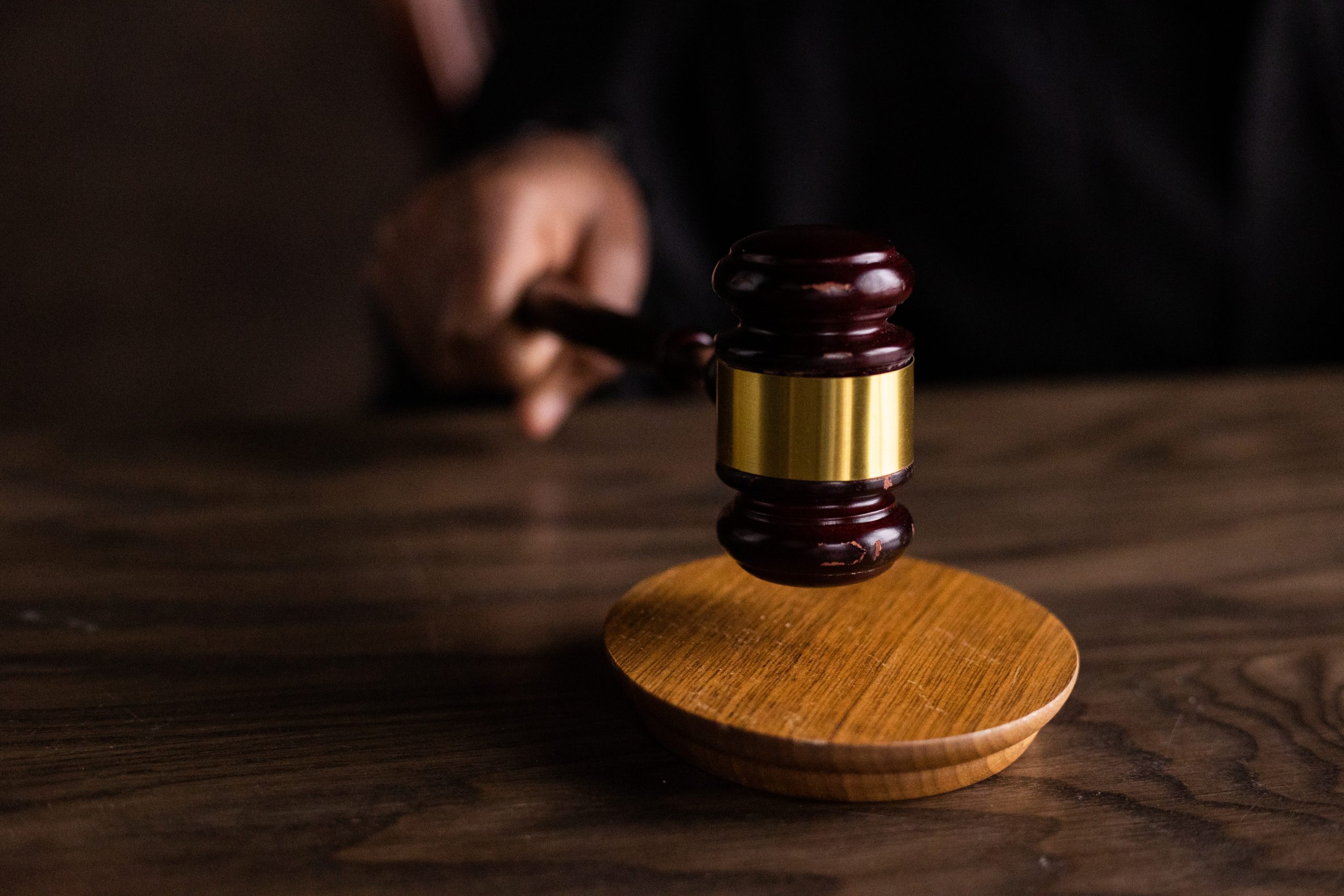Are you in need of legal assistance for a family matter in Eagle Mountain, Utah? Look no further! Our Family Law Attorney in Eagle Mountain, Utah is here to provide you with the guidance and support you need. From divorce and child custody to adoption and domestic violence cases, our attorney is well-versed in all aspects of family law. With their extensive knowledge and compassionate approach, you can rest assured that your legal concerns will be addressed with care. Don’t hesitate – give us a call today and take the first step towards finding the resolution you deserve.
What is Family Law?
Family law is a legal practice area that focuses on issues related to family relationships. It encompasses a wide range of legal matters, including divorce, child custody, child support, adoption, and more. Family law is designed to protect the rights and interests of individuals and families, and it plays a crucial role in resolving disputes and ensuring the well-being of everyone involved.
Definition of Family Law
Family law is a branch of law that deals with legal matters pertaining to families and domestic relations. It encompasses various areas, such as marriage, divorce, child custody, child support, adoption, surrogacy, and more. Family law aims to provide legal remedies and guidance in resolving disputes and addressing the rights and responsibilities of family members.
Importance of Family Law in Utah
Family law plays a vital role in Utah by providing a framework for resolving family-related issues in a fair and equitable manner. It sets out the guidelines and procedures for handling divorce, child custody, and other matters, ensuring that the best interests of all parties involved are taken into consideration. Family law also helps to protect the rights and well-being of children, promote stability in families, and promote the overall welfare of society.
The Role of a Family Law Attorney
In navigating the complexities of family law, it is crucial to have the expertise and guidance of a family law attorney. A family law attorney is a legal professional who specializes in matters related to family law and can provide invaluable assistance throughout the legal process.
Guidance and Representation
One of the primary roles of a family law attorney is to provide guidance and representation to individuals facing family-related legal issues. Whether you are going through a divorce, seeking custody of your child, or facing any other family law matter, an attorney can help you understand your rights, options, and legal obligations. They will guide you through every step of the legal process, ensuring that your best interests are protected.
Negotiation and Mediation
Family law attorneys are skilled negotiators and mediators. They can help you negotiate settlements and agreements with the other party involved in your case. Negotiation and mediation can often be a more cost-effective and less adversarial way to resolve family law disputes. Your attorney will advocate for your interests, work towards finding common ground, and guide you through the process of reaching a mutually beneficial agreement.
Litigation and Court Proceedings
In some cases, litigation and court proceedings may be necessary to resolve family law disputes. If negotiations and mediation are unsuccessful or if you are facing a contentious legal matter, a family law attorney will represent you in court. They will present your case, provide legal arguments, and ensure that your rights are protected throughout the litigation process. A skilled attorney will be well-versed in the intricacies of family law and will fight for your best interests in court.

Common Legal Concerns in Family Law
Family law encompasses a wide range of legal concerns that individuals may face. Here are some of the most common issues that arise in family law cases:
Divorce and Legal Separation
Divorce and legal separation can be emotionally and legally complex. A family law attorney can assist you in navigating the divorce process, including property division, spousal support, and child custody matters. They will work to ensure that your rights are protected and that the outcome is fair and just.
Child Custody and Visitation
Child custody and visitation are often the most critical concerns for parents going through a divorce or separation. A family law attorney will help you understand your rights and work towards a custody arrangement that meets the best interests of the child. They will advocate for your parental rights and strive to achieve a custody arrangement that allows for meaningful relationships with your children.
Child Support and Alimony
Child support and alimony, also known as spousal support, are financial obligations that may arise in family law cases. A family law attorney will help you understand the laws surrounding child support and alimony in Utah and ensure that the appropriate calculations are made to determine the amounts. They will advocate for a fair and equitable resolution that meets the needs of all parties involved.
Division of Assets and Debts
When a marriage ends, the division of assets and debts can be a contentious issue. A family law attorney will assist you in navigating the division process, ensuring that assets and debts are distributed fairly. They will advocate for your interests and work towards securing a favorable outcome.
Adoption and Surrogacy
Adoption and surrogacy involve complex legal processes and requirements. A family law attorney specializing in adoption and surrogacy can guide you through the necessary legal steps, help with paperwork, and ensure that all legal requirements are met. They will work towards facilitating a smooth and successful adoption or surrogacy arrangement.
Benefits of Hiring a Family Law Attorney
Hiring a family law attorney offers numerous benefits that can greatly impact the outcome of your case. Here are some key advantages:
Expertise and Experience
Family law attorneys have in-depth knowledge and expertise in family law matters. They have years of experience handling various legal issues, allowing them to provide informed advice and guidance. By having an attorney on your side, you can benefit from their wealth of knowledge and experience, giving you a higher chance of achieving a favorable outcome in your case.
Objective Advice and Guidance
Family law attorneys provide objective advice throughout the legal process. They are not emotionally invested in your case, allowing them to provide clear and unbiased guidance. An attorney can help you make informed decisions, navigate complex legal proceedings, and ensure that your actions align with your best interests.
Protection of Rights and Interests
A family law attorney is dedicated to protecting your rights and interests. They will advocate for you during negotiations, mediation, and litigations, ensuring that your voice is heard and your rights are upheld. With an attorney on your side, you can have peace of mind knowing that you have a dedicated advocate fighting for your best interests.
Choosing the Right Family Law Attorney
Selecting the right family law attorney is crucial to the success of your case. Here are some factors to consider when choosing an attorney:
Experience and Specialization
Look for a family law attorney with significant experience and specialization in handling cases similar to yours. An attorney with expertise in your specific area of family law will have the necessary knowledge and skills to navigate the complexities of your case effectively.
Communication and Availability
Effective communication is vital when working with a family law attorney. Choose an attorney who is responsive, attentive, and willing to answer your questions. A good attorney will keep you updated on the progress of your case and make themselves available to address your concerns.
Client Reviews and Testimonials
Research and read reviews and testimonials from past clients to get an understanding of the attorney’s reputation and track record. Positive reviews and testimonials can provide you with confidence in their abilities and trustworthiness.
The Family Law Process
The family law process can vary depending on the specific legal concerns and the circumstances of your case. However, it generally follows these stages:
Initial Consultation
During the initial consultation, you will meet with a family law attorney to discuss your case. The attorney will gather information, assess the merits of your case, and provide an initial evaluation. This is an opportunity for you to ask questions and for the attorney to explain the legal process and potential outcomes.
Legal Strategy and Action Plan
After the initial consultation, the attorney will develop a legal strategy and action plan tailored to your case. They will outline the steps they will take to achieve your goals and address any legal concerns that arise. This includes gathering evidence, preparing legal documents, and identifying negotiation or litigation strategies.
Negotiation and Settlement
In many family law cases, negotiation and settlement are favored over court litigation. Your attorney will engage in negotiations with the other party and their attorney to reach a mutually agreeable resolution. They will advocate for your interests, protect your rights, and work towards achieving a fair and equitable outcome.
Litigation and Trial
If negotiations and settlement attempts are unsuccessful, your case may proceed to court. Your family law attorney will represent you in court, presenting your case, arguing on your behalf, and advocating for your rights and interests. They will navigate the litigation process, provide legal arguments, and work towards securing a favorable outcome.
Post-Trial Proceedings
After a trial or court decision, there may be post-trial proceedings, such as requesting modifications, enforcing court orders, or appealing the decision. Your family law attorney will guide you through these post-trial proceedings, ensuring that your rights are protected and your best interests are served.

Emotional Support in Family Law Cases
Family law matters can be emotionally challenging and stressful. A good family law attorney understands the emotional toll these cases can take and provides support beyond legal assistance.
Understanding and Empathy
A compassionate family law attorney will empathize with your situation and provide understanding. They will listen to your concerns, alleviate fears and anxieties, and offer emotional support throughout the legal process. Their understanding and empathy can help you feel more at ease during a challenging time.
Counseling Referrals
In some cases, emotional support may extend beyond the attorney’s role. A family law attorney can provide referrals to trusted therapists or counselors to assist with any emotional or mental health needs that may arise during the family law process. These professionals can provide additional support and guidance.
Supportive Resources
A family law attorney can also connect you with supportive resources and organizations that specialize in helping individuals going through family law cases. These resources may offer support groups, educational materials, and community services that can help you navigate the emotional challenges associated with your case.
Frequently Asked Questions
If you have questions about family law matters, here are answers to some commonly asked questions:
How long does a divorce process take?
The duration of a divorce process can vary depending on the complexity of the case and the level of conflict between the parties involved. Some divorces can be resolved amicably and quickly, while others may take several months or even years. It is best to consult with a family law attorney to get an estimate based on the specific circumstances of your case.
Can I modify a child custody arrangement?
Yes, child custody arrangements can be modified if there has been a significant change in circumstances or if it is in the best interests of the child. However, the process for modifying a custody arrangement can be complex. It is advisable to seek the guidance of a family law attorney who can help you navigate the legal requirements and advocate for your desired changes.
How is child support calculated in Utah?
Child support in Utah is calculated based on the income of both parents, the number of overnights each parent has with the child, and other factors outlined in the Utah Child Support Guidelines. These guidelines provide a formula that considers various factors to determine the appropriate amount of child support. A family law attorney can help you understand how child support is calculated in Utah and ensure that the calculations are accurate.
Can grandparents file for visitation rights?
In Utah, grandparents may file for visitation rights under certain circumstances. However, the legal requirements for grandparents’ visitation rights can be complex. It is essential to consult with a family law attorney who can assess your specific situation and advise you on the available options for pursuing visitation rights.
What are the requirements for adoption in Utah?
Adoption requirements in Utah vary depending on the type of adoption, such as domestic adoption, international adoption, or stepparent adoption. Generally, the adoption process involves home studies, background checks, legal paperwork, and court hearings. It is important to work with a family law attorney who specializes in adoption to ensure compliance with all legal requirements and streamline the adoption process.

Contact a Family Law Attorney Today
If you are facing any family law-related issues, it is essential to seek the assistance of a qualified and experienced family law attorney. They can provide you with the guidance, representation, and emotional support needed to navigate the complexities of your case successfully.
Call [Phone Number]
To speak with a knowledgeable family law attorney in Eagle Mountain, Utah, call [Phone Number]. They understand the nuances of family law and are dedicated to helping individuals and families resolve their legal concerns promptly and effectively.
Schedule a Consultation
To schedule a consultation with a family law attorney, reach out to them at [Phone Number] or visit their website. During the consultation, you will have the opportunity to discuss your case, ask questions, and gain a better understanding of your legal options.
Take the First Step
Don’t hesitate to take the first step towards resolving your family law matters. Contact a trusted family law attorney today and let them guide you through the legal process, offering expert advice and support every step of the way.

























